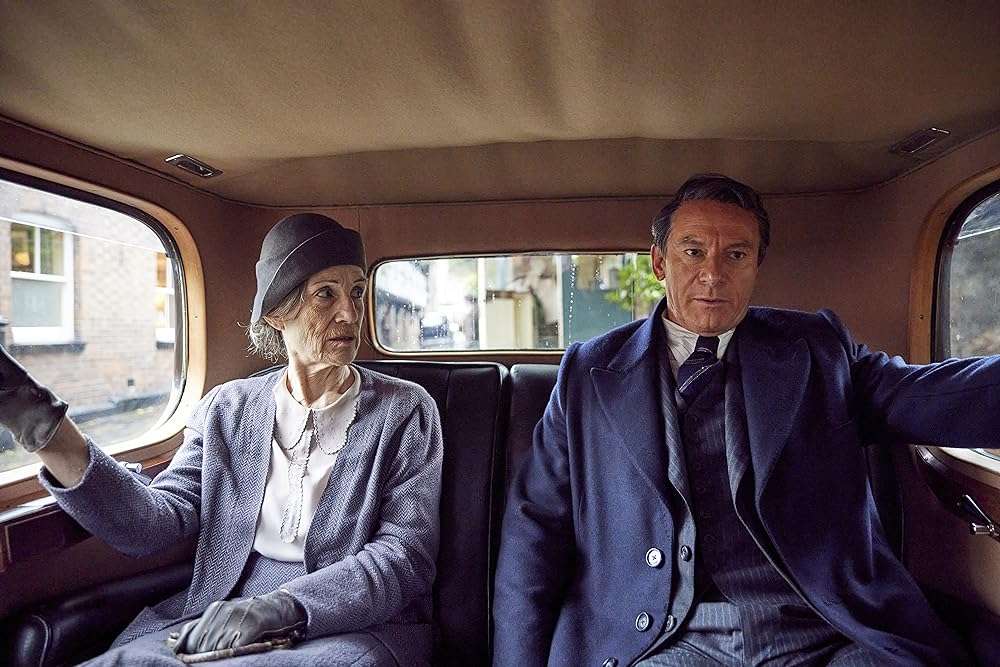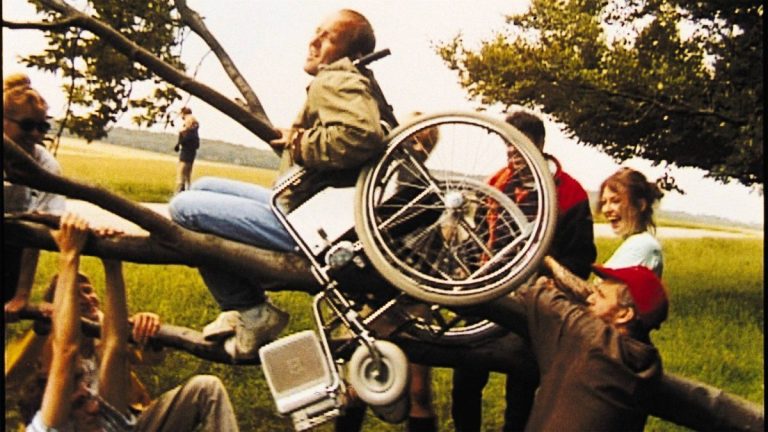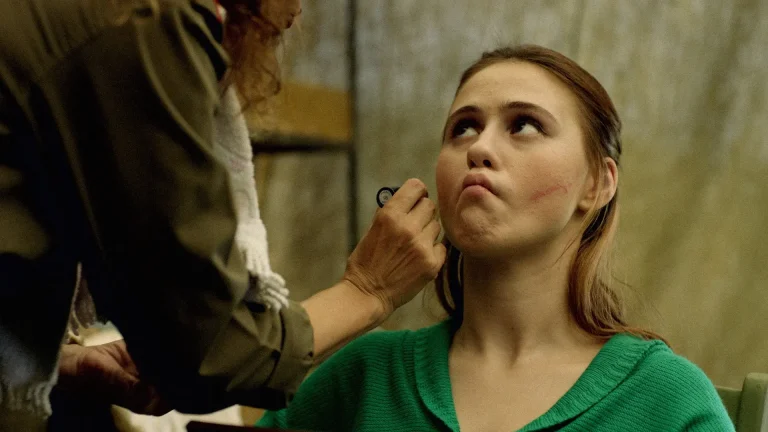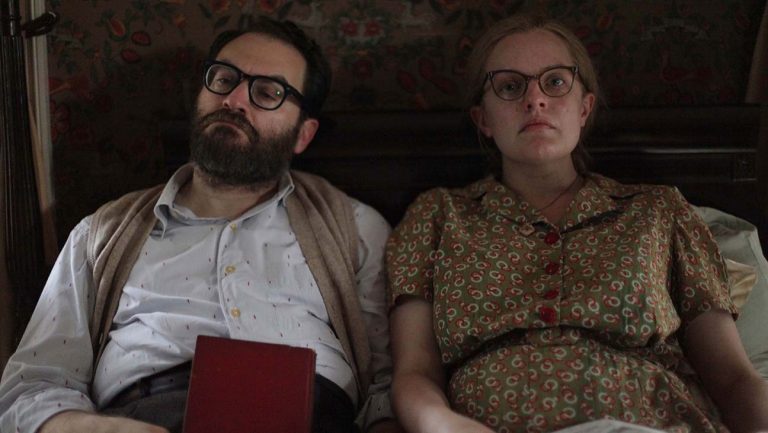Self-importance is often an issue in British documentaries. Since the filmmakers cannot hide their bloated sense of self, they end up lowering our interest in what they hope to discuss. Such filmmakers consider themselves and their work a little too precious – which results in something pretentious. Well, ‘Archie’ isn’t pretentious, but it certainly gloats over its iconic protagonist a little too much. Cary Grant’s commanding & charismatic persona as Hollywood’s great leading man is indisputable. But that doesn’t excuse the show’s glittery, dreamlike representation of the era that turned him into a star.
We meet Mr. Grant primarily in two stages of his life – childhood, when he often felt neglected, and late adulthood when he was widely celebrated. The actor’s actual name was Archibald/Archie Leech. As a child born in England, he always sought approval from his parents but never received it. We get a sense that his father either feared or loathed a sense of responsibility. That’s why he kept both Archie and his mother – Elsie, at a distance. Being in an era where women’s agency was not a point of discussion, Archie’s mother accepted the fate her husband left her with. In the midst of this, Archie felt isolated and woefully ignored.
That’s when performance arts came into the picture. Young Archie got a taste of the validation it offered to him. One thing led to another, and he ended up spending his young adulthood in the US. As many such stories go, his Hollywood story was also of accidental fame. To be in the movies, he chose the name – Cary Grant (or the name chose him!) Shortly after, it became his source of endless approval. After that, his life became a balancing act – trying to gain all that he could not at a young age – while staying distant from the painful memories.
Eventually, it almost seemed like he never had a past. There was only the birth of Cary Grant and the aftermath. The miniseries tries to demystify this immensely likable image that gained Archie an abundance of success and popularity. But there’s a caveat. As something Shahrukh Khan once mentioned in an interview, his life continued to be just in the service of his larger-than-life persona. Women, men, everyone desired Cary Grant. So, it almost became a glittery and comforting trap for him. The show’s writing beautifully explores his internal battles – be it in regards to fading youth or being truthful about himself with those he loved.

We meet Dyan Cannon (played brilliantly by Laura Aikman), whom he married at the dawn of his career. Through their relationship, we see the obvious conflicts that can arise due to their age gap and the difference in their popularity. Their relationship seemed like Grant’s attempt at holding on to his youthful image – while realizing that it is slowly slipping away – due to his growing age. No matter how hard he tried not to be like his father, he shared the same fear of commitment. As a tormented soul with no lived-in experience of a family, he also strived to have a conventional ‘normal’ family.
On the other hand, as a man with influence and wealth, he was a closet chauvinist. The series portrays him that way and then shows how him trying to correct those errors. His dynamic with Dyan conveys a series of behavioral patterns that stem from his past, probably because he kept it suppressed over the years.
Despite showing all these layers of his personality, the series operates largely within the biopic tropes. It shows the oldest Cary Grant speaking with an audience and dwelling on his life’s regrets and lessons. Although informative, you cannot help but see it as just a run-of-the-mill expository exercise to share his life’s details. It also serves as a way of washing up the stains on his image due to his unpleasant behavior. Speaking about the story of his childhood, the series uses a Dickensian approach to storytelling. At times, this method works incredibly well.
But in the case of Archie, it feels pity-inducing and thus emotionally dishonest. With all that just does not work, what works are the performances. Jason Isaacs is absolutely incredible as Cary Grant. I know it’s a cliche, but he is so good that you often forget that you are watching a performance and not the actual person! He captures all the nuances of his character and the in-between subtexts with clarity and does not miss being great, even for a single moment. He basically presents a performance within a performance within a performance. Yet, his deep understanding of this loop elevates the show to become much more impactful.





![The Cabinet of Dr. Caligari [1920] – A Ground-Breaking and Intensely Weird Silent Masterpiece](https://79468c92.delivery.rocketcdn.me/wp-content/uploads/2020/02/The-Cabinet-of-Dr.-Caligari-1920-768x615.jpg)
![Throne of Blood [1957] Review – Akira Kurosawa’s misfire](https://79468c92.delivery.rocketcdn.me/wp-content/uploads/2020/04/Throne-of-Blood-768x432.jpg)
